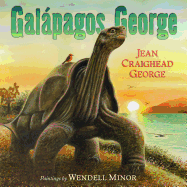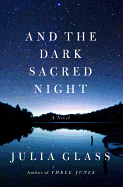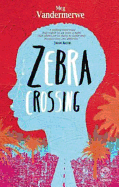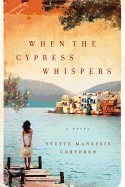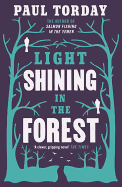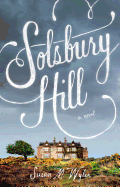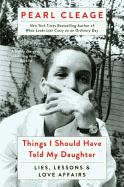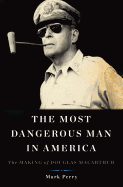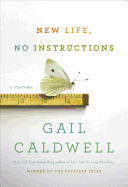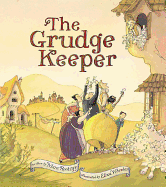Tuesday, April 15, 2014
In April 1939, John Steinbeck's The Grapes of Wrath was published by Viking Press. It became a bestseller, and won the National Book Award and the Pulitzer. This month, Penguin is releasing a 75th-anniversary hardcover edition featuring the original cover illustration.
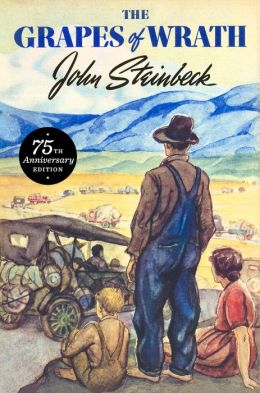
Susan Shillinglaw brings this out beautifully in her excellent On Reading The Grapes of Wrath (Penguin, $14, paperback). She says we come back to this book because "Steinbeck asks us to open our hearts." His words are "urgent and essential for a compassionate world." She draws comparisons with the country's homeless today, and makes a reference to Syria in 2000 when farmers with dry wells abandoned their homes; a severe drought from 2006 to 2011 accelerated the exodus, paralleling "the 1930s croppers in Dust Bowl Oklahoma." She points out that Steinbeck's novel "considers the ecology of human relationships, layer by layer," how humans are bound to one another and their habitats.
She reminds us that Tom Joad was no reformer--he has no answers, no solutions. He's just a man struggling like so many men and women. But he asks us to care: "Wherever they's a fight so hungry people can eat, I'll be there. Wherever they's a cop beatin' up a guy, I'll be there."
The Grapes of Wrath--relevant then and relevant today, 75 years later. --Tom Lavoie, former publisher
And the Dark Sacred Night
by Julia Glass
Unemployed college teacher Kit Noonan is suffering from ennui, and his frustrated wife suggests he'll remain directionless until he answers the question that's haunted him all his life: Who was his father? Like Julia Glass's four earlier novels, And the Dark Sacred Night is a multigenerational family saga; fans of her earlier works will be delighted that likable bookseller Fenno McLeod (of Three Junes and The Whole World Over) is back, playing a significant role.
Kit's mother, Daphne, has never provided a clue to his paternity, so he leaves his wife and children behind in New Jersey and begins his search with her ex-husband. Jasper, a ski slope entrepreneur in Vermont, is eager to reconnect with the stepson he's hardly seen in years. While Kit therapeutically immerses himself in Jasper's life of skis and dog sleds, Jasper shares what he knows of Kit's roots, which propels Kit to contact his biological grandmother.
Along with engaging characters, colorful East Coast locales and revelations of knotty, long-held secrets, Glass incorporates social issues relevant to Kit and his rapidly expanding family, including care of the elderly, still-raw sorrows of World War II, gay rights and the complications of unwed motherhood. Using a then-and-now construction--from Kit's parents' and grandparents' youth to the present--Glass reveals Kit's parentage early on, but the reader is still surprised by the complications his quest unearths. As familial love prevails, new relationships form, and Kit finds his place in the world. --Cheryl Krocker McKeon, bookseller, Book Passage, San Francisco, Calif.
Discover: A saga spanning three generations of a family's history, sparked by one man's efforts to discover who he is.
Zebra Crossing
by Meg Vandermerwe
Chipo, the narrator of Meg Vandermerwe's debut novel, Zebra Crossing, stands out like a zebra among ponies, her pale skin and white hair marking her as freak and an oddity in her native Zimbabwe. To some, she is bad luck, the devil's vessel. To others, she's a potential talisman to be coveted, a collection of body parts worth thousands of dollars on the black market. When her beloved mother dies after a long illness, Chipo and her older brother, George, flee to South Africa in search of a new beginning. "Borders rhymes with orders," Chipo tells us, "A border is where you swap home for hope." The 2010 World Cup is rapidly approaching in Cape Town, bringing with it the world's attention and the excitement of a potential economic boom. Instead of a land of welcome and opportunity, however, Chipo and her brother are confronted with a hostile, challenging environment with little room for outsiders. No stranger to bigotry and abuse, Chipo finds herself embroiled in a shady business venture with a snake-oil salesman who exploits superstitious World Cup gamblers.
Zebra Crossing reminds readers that cities often present a very different face when the world is watching. As Chipo says, "Xenophobia is a long word. Complicated, arrogant. It thinks it is smarter than other words. It is a bully." Vandermerwe elegantly conjures the unpleasant underbelly of a familiar moment in recent history, while managing to avoid heavy-handed moralizing. Chipo amounts to more than her chances of redemption, and Zebra Crossing is a story for outsiders anywhere. --Emma Page, bookseller at Wellesley Books in Wellesley, Mass.
Discover: A simple, powerful novel about soccer, South Africa and a girl who doesn't belong.
When the Cypress Whispers
by Yvette Manessis Corporon
Since childhood, Daphne has loved spending summers on the Greek island of Erikousa with her grandmother. Gentle and wise, Yia-yia has always nourished Daphne's body and soul with her simple, hearty food and her retellings of the ancient Greek myths. When Daphne, now a young widow struggling to raise a daughter alone and run a successful Greek restaurant in New York, returns to Erikousa, she expects to revel in the same simple pleasures the island has always offered her. But as Daphne prepares to marry again, Yia-yia and the island have a few new secrets to tell--secrets that will force Daphne to rethink the path her life has taken.
Yvette Manessis Corporon's debut novel, When the Cypress Whispers, deftly evokes the delectable sights, sounds and smells of the Greek heritage she shares with her characters. While the romantic plotline feels predictable, even routine, the supporting cast (including the literal, loud Greek chorus of Daphne's friends and family) is fresh and entertaining. Yia-yia's renditions of several Greek myths, all involving women faced with life-altering choices, are both charming and germane to the story. But the heart of the novel lies in Yia-yia's own experience of love, loyalty and sacrifice during the dark days of World War II.
Sun-drenched, evocative and a wee bit magical, When the Cypress Whispers is both a perfect beach read and a compelling portrait of a family of strong women. --Katie Noah Gibson, blogger at Cakes, Tea and Dreams
Discover: An evocative debut novel of family, war, love and sacrifice set on a sun-drenched Greek island.
Light Shining in the Forest
by Paul Torday
Light Shining in the Forest by Paul Torday (Salmon Fishing in the Yemen) begins as an eccentric, dreamy tale of an ineffectual pencil-pusher and a family distraught over a missing child whose trail has gone cold. A forester named Geordie works alone on a clear-cut at the English-Scottish border and remembers his missing stepson. A smarmy, self-satisfied career bureaucrat named Norman revels in his latest assignment: in a new pilot program of the British government he is given the title of "Children's Czar" to the North East region, along with a hefty salary and a fine office and nothing to do. He sits at his fancy desk sipping lattes and waits to receive a mission that never comes.
Geordie's stepson has been missing for months; but when more children go missing in a sleepy town nearby, an ambitious young journalist wonders if a children's czar might be just the one to show some concern. Despite Norman's repeated protest that his job is "strategic, not operational," he is eventually goaded into action. When the unlikely team of journalist and bureaucrat initiates an investigation into the missing children, Light Shining in the Forest begins to accelerate into a thriller of great suspense and intensity. What started as a story of a surreal forest and quiet distress becomes a terrifying view into the mind of a monster, with religious overtones and paranormal possibilities and a panicked journey into the heart of the forest. Torday delights in creepy details as he turns his created world on its head; readers will be tempted to stay up late to finish reading but will need to keep all the lights on. --Julia Jenkins, librarian and blogger at pagesofjulia
Discover: A disturbing thriller of missing children in a small English town, masquerading as a quiet tale about political red tape.
Solsbury Hill
by Susan M. Wyler
Jane Austen's books have inspired innumerable continuations and sequels, but the Brontë sisters' novels have fewer retellings. In Solsbury Hill, Susan M. Wyler takes the dark love story of Wuthering Heights and updates it into a contemporary romance.
Life has been straightforward for Eleanor Abbott. She's a successful clothing designer living in Manhattan, and is sort-of engaged to her childhood sweetheart, Miles. But then Eleanor catches Miles cheating and gets a call from her nearly forgotten Aunt Alice, who is dying in Yorkshire. Distraught by Miles's perfidy, Eleanor heads to Trent Hall, her family's ancestral English home, and is quickly absorbed by its isolated, windswept allure.
Eleanor discovers secrets about her family--including rumors that Trent Hall inspired Emily Brontë's beloved novel and that she herself is descended from Emily. She also discovers surprising insights about herself, including an attraction to Mead, her aunt's adopted son. Aunt Alice's dying days remind Eleanor of her own mother's death, sending her on a voyage of reminiscence and self-discovery.
Written in a romantic, spare style, Wyler's novel clearly harks back to its inspiration: Eleanor sleeps in a bedroom within a bedroom, and the dark-haired, inscrutable Mead is actually named Meadowscarp (a synonym for Heathcliff). Solsbury Hill doesn't have the same gothic gravitas as Wuthering Heights, but with its lonely moors, ghostly apparitions and conflicted heroine, Solsbury Hill's literary roots are strong. Wyler's more happily romantic take on the tragic story makes for an enjoying and approachable read. --Jessica Howard, blogger at Quirky Bookworm
Discover: A modern romance fraught with all the tension of Wuthering Heights.
Mystery & Thriller
The Intern's Handbook
by Shane Kuhn
Shane Kuhn's debut novel may have an innocuous title, but the titular instruction manual is far from toothless. The handbook is written by John Lago for the new employees at Human Resources, Inc., a placement agency for assassins who pretend to be interns in order to infiltrate major corporations and eliminate targets. John is about to turn 25, forced retirement age for HR employees--any older and the interns would draw attention. He wants to pass on his knowledge and survival skills so the new recruits can avoid the "all-inclusive interrogation and torture package" at Guantanamo Bay. He details his final assignment, which he initially worried wasn't a challenging-enough swan song. He was all kinds of wrong.
John is an appealing narrator, a hit man with his own code of honor about collateral damage that sometimes puts him at odds with his elusive boss, Bob, who may or may not have John's best interests in mind. Fans of Duane Swierczynski's Charlie Hardie trilogy and Josh Bazell's Beat the Reaper should enjoy this witty, deadly thriller. The pace may induce whiplash and some of the action is over the top; that's easily overlooked because the darkly comic story is so fun and w(h)acky. Just when John thinks he knows where his last job is headed, it jinks in an unexpected direction. The biggest surprise (for both the near-retiree and readers) is how affecting the journey turns out to be. --Elyse Dinh-McCrillis, blogger at Pop Culture Nerd
Discover: A wild and crazy fictional guidebook written by a young assassin on the cusp of retirement.
Romance
Three Weeks with Lady X
by Eloisa James
Eloisa James (A Duke of Her Own) continues her ravishing Desperate Duchesses series in this sexy romp between a decidedly ungentlemanly hero and a heroine who's as self-sufficient as her peers are dependent. Lady Xenobia's unconventional parents left her with little more than a title and her bizarre first name when they apparently abandoned her and then died in a carriage accident. Now a grown woman who goes by her middle name, India, she wants to marry on her own terms, which means earning her dowry by whipping out-of-date households into shape with new furnishings and better staff. Someday her prince will come and find her amply prepared, but he's certainly not Thorn Dautry, her brash and disturbingly sensual new employer.
The bastard son of a duke, Thorn rose from his boyhood occupation as a riverside scavenger to acquire a fortune. His plans to snatch up a docile, nurturing nobly born bride require a veneer of class, so India's services are required. As they move from flirtation to friendship to more, Thorn begins to realize his Lady X isn't the lady wife he imagined for himself, but she is the one he has to have.
James achieves a lovely balance between the provocative and the endearing. The spicy, teasing relationship between Thorn and India gets entertainingly caustic, but readers who crave sweetness can still get their fix from a charming secondary romance. This compassionate examination of two walled-off hearts breaking through to each other sparkles like diamonds in the Thames. --Jaclyn Fulwood, blogger at Infinite Reads
Discover: The spicy love story of a reluctant social climber and the strong-willed beauty commissioned to fashion him into a gentleman.
Biography & Memoir
Things I Should Have Told My Daughter: Lies, Lessons & Love Affairs
by Pearl Cleage
Pearl Cleage kept a journal long before her first novel, What Looks Like Crazy on an Ordinary Day, was chosen for Oprah's Book Club. Writing journal entries helped her clarify her thoughts, and she recorded everything from her exuberant reactions to movies and books to her growing feminist awareness and her relentless examination of her own sense of purpose.
Cleage returned to her journals when her adult daughter suggested she burn them, arguing that they were too emotional to be reliable and her tumultuous life and accomplishments were already public. Cleage had worked with Atlanta's first African-American mayor as communications director, written a popular column and had been the wife of a prominent local figure before divorcing and finding eventual literary success. But in the entries, Cleage was confronted with her younger self: unprepared for her life and fearful enough of claiming it that she regularly reminded herself to "be very bold." The journals--selections from which became Things I Should Have Told My Daughter--reveal her struggle to reconcile her public profile with her growing feminism and her private yearning for personal and artistic freedom.
Cleage offers no apologies. Her affairs with married men, her marijuana use and her accomplishments are all present, unedited and unvarnished, without the editorial gloss of hindsight or rationalizing context. The result can occasionally be confusing but provides a powerful emotional immediacy and a full portrait of a woman increasingly unafraid of her ambitions, willing to expose her less admirable side along with her achievements and determined to present the full truth of an evolving self. --Jeanette Zwart, freelance writer and reviewer
Discover: The unedited journals of an acclaimed writer and activist, which reveal her struggle to be brave enough to live an authentic life.
The Most Dangerous Man in America: The Making of Douglas MacArthur
by Mark Perry
In 1932, then-presidential candidate Franklin D. Roosevelt called Douglas MacArthur the most dangerous man in America. Published almost exactly 50 years after MacArthur's death, The Most Dangerous Man in America is far less expansive than William Manchester's American Caesar. Instead, this partial biography stretches from MacArthur's tenure as the army's Chief of Staff (1930–35) to Japan's surrender aboard the U.S.S. Missouri, with only minor mentions of his World War I or Korean War experiences. Mark Perry (Partners in Command; Grant and Twain) follows the controversial general largely during his relationship with FDR, who sought to "tame" MacArthur into a useful political and military tool. The result is a compelling, succinct account of a deeply flawed but brilliant leader, a man seemingly created for the circumstances through which he lived.
The Most Dangerous Man in America revolves around MacArthur's lifelong love of the Philippines. His flight from the Philippines in 1942 is one of several controversial marks on MacArthur's legacy, which Perry skillfully deconstructs. MacArthur was ordered to leave after orchestrating an unexpectedly successful defense against impossible odds, and Perry further examines the general's blunders related to the campaign: MacArthur dodged responsibility for the failure to get his planes airborne prior to the Japanese attack on the Philippines, and he did not recant his singular "I shall return" promise. Through the whirlwind years of fighting that follow, Perry depicts MacArthur as vain and arrogant, but also a great leader of men. With fluid prose and fascinating personalities, The Most Dangerous Man in America should appeal to military history and biography buffs alike. --Tobias Mutter, freelance reviewer
Discover: Controversial general Douglas MacArthur's flawed brilliance on display during the Second World War.
New Life, No Instructions: A Memoir
by Gail Caldwell
Gail Caldwell's 2010 memoir, Let's Take the Long Way Home, explored the losses that defined her fifth decade: her parents, her best friend and her beloved Samoyed, Clementine. She came into her 60s determined to move on, including starting over with a new puppy. But living with and training an active young dog forced Caldwell to confront just how difficult "moving on" was becoming for her in a physical sense. Caldwell had been compensating for the effects of polio her entire life, and this was getting harder every day. New Life, No Instructions is the story of how she learned she didn't have to continue to compensate, and of how a common medical procedure enabled her to see her life, literally, from a new perspective.
Caldwell's medical history led her and her caregivers to an exotic explanation for her painful limp and poor balance; for years, they had been trying to address the symptoms of what they believed to be the relatively rare Post-Polio Syndrome. In 2011, a new doctor identified her problem as something far more ordinary: her right hip had completely deteriorated, and she needed replacement surgery.
New Life, No Instructions is an affirming and hopeful reminder that sometimes the stories that we tell ourselves turn out to be wrong, but they can lead us to something very right. Caldwell's brief (under 200 pages) memoir of a year of unexpected midlife transformation is clear-eyed and plainspoken. She vividly conveys her sense of wonder and possibility at being in such a new place at such an unexpected time, and it's hard to resist sharing that feeling. --Florinda Pendley Vasquez, blogger at The 3 R's Blog: Reading, 'Riting, and Randomness
Discover: How a woman's sense of herself is changed by two insightful doctors and one energetic dog.
Children's & Young Adult
Galápagos George
by Jean Craighead George, illus. by Wendell Minor
In her last picture-book collaboration with artist Wendell Minor, the late Jean Craighead George (Julie of the Wolves) tells the poignant story of the lineage of the saddleback tortoise from one imagined ancestor--Giantess George--and through it, teaches children how creatures evolve over time in order to adapt to their environment.
A born storyteller, Jean George describes Giantess George's lengthy presence on the planet, watching animals large and small "run over the footprints of the long-vanished dinosaurs." Wendell Minor (The Eagles Are Back) places Giantess George among erupting volcanoes and saber-toothed cats, then being swept to sea by a storm in South America. Giantess George eventually lands on an island "later named San Cristóbal." The text differentiates when the tortoise "did something new" (such as floating) and when she "did something ordinary for a tortoise," such as going for days without food or fresh water (as a desert animal). With her special trait--a neck that's "a little longer than the necks of other tortoises"--she can eat leaves when the ground supply of food runs out. Minor shows similar unusual adaptations of tortoises on nearby islands. One dramatic illustration depicts Lonesome George, the last of Giantess George's descendants, as large as two of the six men it took to transport him to safety. Minor's closing portrait is so expressive that children will feel as if Lonesome George somehow knew there would be no others after him.
This beautiful homage conveys complex ideas in concrete ways so children can witness how these extraordinary tortoises survived so long in their particular habitats. Splendid. --Jennifer M. Brown, children's editor, Shelf Awareness
Discover: A picture book exploration of one tortoise's lineage as a window into understanding the way the fittest survive through adaptation.
The Grudge Keeper
by Mara Rockliff, illus. by Eliza Wheeler
The townsfolk of Bonnyripple align their priorities when old Cornelius, the Grudge Keeper, falls prey to a storm in Mara Rockliff's (Me and Momma and Big John) charming tale brimming with wordplay.
In Eliza Wheeler's (Miss Maple's Seeds) pen-and-ink and watercolor wash, old Cornelius's house resembles the Old Woman's Shoe, overflowing with "ruffled feathers, petty snits, minor tiffs and major huffs." They're rolled up under his bed, stuck in glass jars and loaded on a wheelbarrow. Rockliff lists a few of them: Minnie Fletcher's goat gulping down Elvira Bogg's prize-winning zinnias, student Sylvester Quincy snagging the schoolmaster's toupee and Big Otto stomping on Lily Belle's new shoes at the spring fling. When a strong wind sails through Bonnyripple, it delivers the schoolmaster's toupee to Minnie Fletcher's hungry goat and wreaks havoc with the grudges ("low blows rested high" and "left-handed compliments... landed on the right-hand side"). Mischievous though he may be, Sylvester Quincy finds Cornelius buried beneath the grudges. As the townsfolk dig him out, they let their complaints go, until "not a single grudge remained." One last domino effect occurs, but it ends with a happily-ever-after.
Wheeler fills her compositions with tantalizing details. Big Otto perpetually leans forward as if to step on any shoe in his path. Sylvester Quincy, arms outstretched, looks about to pilfer anything he covets. All the more miraculous, then, when the Grudge Keeper's home and hearth become the heart of the community. --Jennifer M. Brown, children's editor, Shelf Awareness
Discover: A fable filled with wordplay about a town that aligns its priorities when the Grudge Keeper goes missing.




